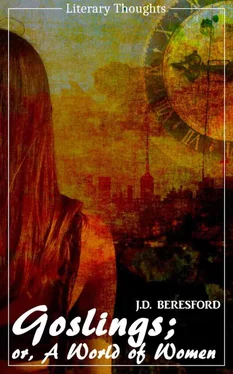But what precisely was the nature of the new plague, none of the journals was as yet able to say. The symptoms had not as yet been “described” by any medical authority, for it appeared that, contrary to modern precedent, the doctor himself, despite all precautions, was peculiarly subject to infection. Out of the eleven new cases in Berlin, no less than four were medical men.
From the layman’s point of view the symptoms were briefly as follows: Firstly, violent pains at the base of the skull, followed by a period of comparative relief which lasted from two to five hours. Then, a numbness in the extremities, followed by rapid paralysis. Death ensued in from twenty-four to forty-eight hours after the pains were first experienced. No case, as yet, was known to have recovered. A well-known physician in London gave it as his opinion that the disease was a hitherto unknown form of cerebro-spinal meningitis of unexampled virulence. He protested that the word “plague” was a false description, but that word had already been impressed on the public mind, and the disease was spoken of as the “new plague” until the end.
2
The next morning all London was reading a heavily-leaded article by Jasper Thrale. It appeared first in the Daily Post, with the announcement that it was not copyright, and all the evening papers took it up, and some of them reprinted it in its entirety.
The article began by pointing out that in the recent history of civilization Europe had been subject to a long succession of pestilences. From the fourteenth to the seventeenth centuries, wrote Thrale, the Black Death, now commonly supposed to be a form of the bubonic plague, was practically endemic in England. In more recent times small-pox had been responsible for enormous mortality among all classes, and, in our own day, tuberculosis. In the two former examples, Thrale pointed out, and in many other diseases, infectious or contagious, or both, these pestilences had gradually lost virulence. By the elimination of those most susceptible to infection and incapable to resist the onslaught of the disease, and by the survival of those whose vitality was strong enough either to resist attack or to achieve recovery, mankind at last were gradually becoming immune against certain infections which had prevailed in the past. And in a greater or less degree this immunity was without doubt being obtained against a whole host of lesser ills. This comparative immunity, in fact, was one of the means of man’s evolution towards a more perfect physical body.
“But let us consider for a moment,” wrote Thrale, “the appalling danger which threatens us when we are attacked by a pestilence which is entirely new to humanity; new, so far as we know, to the world. In the middle of the fourteenth century the Black Death is recorded in some places to have killed two-thirds of the whole population, and, notwithstanding the modern improvement in sanitation and general hygiene, there is no inherent reason why another pestilence may not appear, which may be even more deadly. And we are faced at the present moment with the awful threat that such a pestilence has appeared, the pestilence commonly known as the ‘new plague.’ There is no reason why we should consider the appearance as without precedent in history; there is no reason why we should regard its coming as outside the laws of common probability; finally, and most decisively, there is no reason why England should not be smitten.
“According to report among the Chinese, this ‘new plague’ has been spasmodically epidemic in Tibet for more than a century. We have, as yet, no certain facts upon which to base any hypothesis, but is it not credible that during that time some bacterium or bacillus—hitherto harmlessly parasitic, perhaps, in the blood of lower animals—has changed its life habit? In the isolated and sparsely inhabited regions of Tibet, it is possible that for many thousand years the assumed bacterium was never bred in the blood of man; it is possible that when it first found a new host it was comparatively harmless to him, but within a hundred years it may have become so altered by new conditions that it has developed into what is practically a new species. If these theories are relatively true, it is not unlikely that this new bacterium is working out its own destruction by the destruction of its hosts. It may be that it is one of those blind alleys of evolution which reach a certain stage of development and then disappear. But meanwhile what of mankind? We know so little of the history of microscopic life. There is a whole world of evolution in process of which we have no conception, and at this stage, whether my hypothesis be a possible one or not, we are at least sure that an unknown organism—animal or vegetable—has become visible to us in its effects and may alter the whole history of mankind.
“I lay stress on these aspects, because we are so hide-bound, so restricted, so conventional in our ideas that we assume, without thought, that the process of life as we know of it from a few thousand years of history can never be interrupted. In our few years of individual existence we become accustomed to certain apparent laws of cause and effect, and will not believe that there can be any exception to those assumed laws. But, now, in the face of recent evidence, it is absolutely essential that we should realize instantly and practically that we are threatened with a new factor in life, which imperils the whole human race. It is no longer safe to comfort ourselves with the belief—begotten of our vanity—that the world was necessarily made for man. It behoves us to take measures for our protection without delay, to undertake our own cause and trust no longer in any beneficent Providence that works always for our ultimate benefit.
“These measures of protection are clearly indicated. We must close our doors against the invasion of the plague. Quarantine will not protect us; we must have no traffic with Europe until the danger is past. By the happy accident of our position we can become isolated from the rest of the world. We must close our doors before it is too late.”
3
If the people had not been seriously scared by the sudden irruption of news on the day preceding that on which this article was published, they would have ignored Thrale’s hyperboles—or laughed. But, caught in a moment of agitation and fear, a certain section of the crowd took up Thrale’s suggestion, talked about the “closed door,” held meetings, and started propaganda. The Press, with its genius for appreciating and following public opinion, also took up the suggestion, and was automatically divided into two sections, recognizable as Liberal and Conservative.
The Times took command of the situation with a leader, in which Thrale’s argument was pounded, rather than picked, to pieces; but the Daily Mail produced more effect with two special articles contributed, one by a bacteriologist, the other by a professor of economics. The first had little weight—all argument under that head was as yet founded on the most uncertain hypotheses. The second was so convincing that the less ardent supporters of the “closed door” policy were shaken in their convictions.
The writer of the economic article pointed out that an England with closed doors could not feed herself for a month. He was scrupulously fair in his argument, and was at great pains to show that even if preparation was instantly made to lay in large stores of grain from Canada, tinned meats from America, and food-stuffs generally from the many places which were as yet free from any taint of plague, it would still be impossible to provide for more than a three months’ isolation. Then, leaving this aspect of the question, he went on to show in detail that even if the food could be supplied, the practical cessation of our enormous foreign trade would mean the destruction of England’s commerce, and he wound up with an earnest exhortation to the country at large, warning the people to beware of scaremongers, pessimists, and opportunists who had their own ends to serve, and cared nothing for the general welfare. It was an excellent article in every way; quite one of the best that the Daily Mail had ever published. And as this, too, was declared free of any copyright restrictions, it was largely circulated.
Читать дальше












